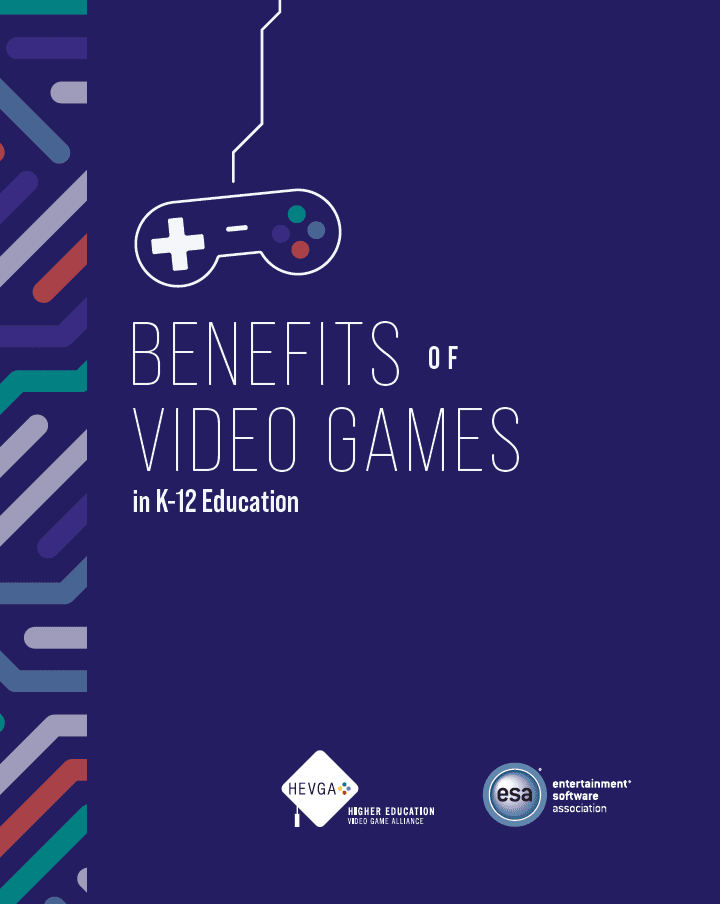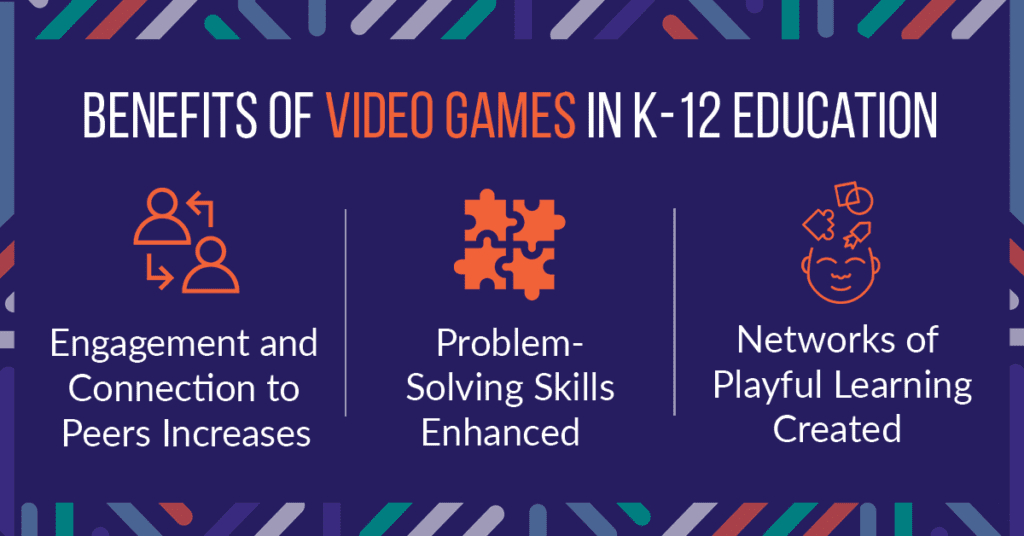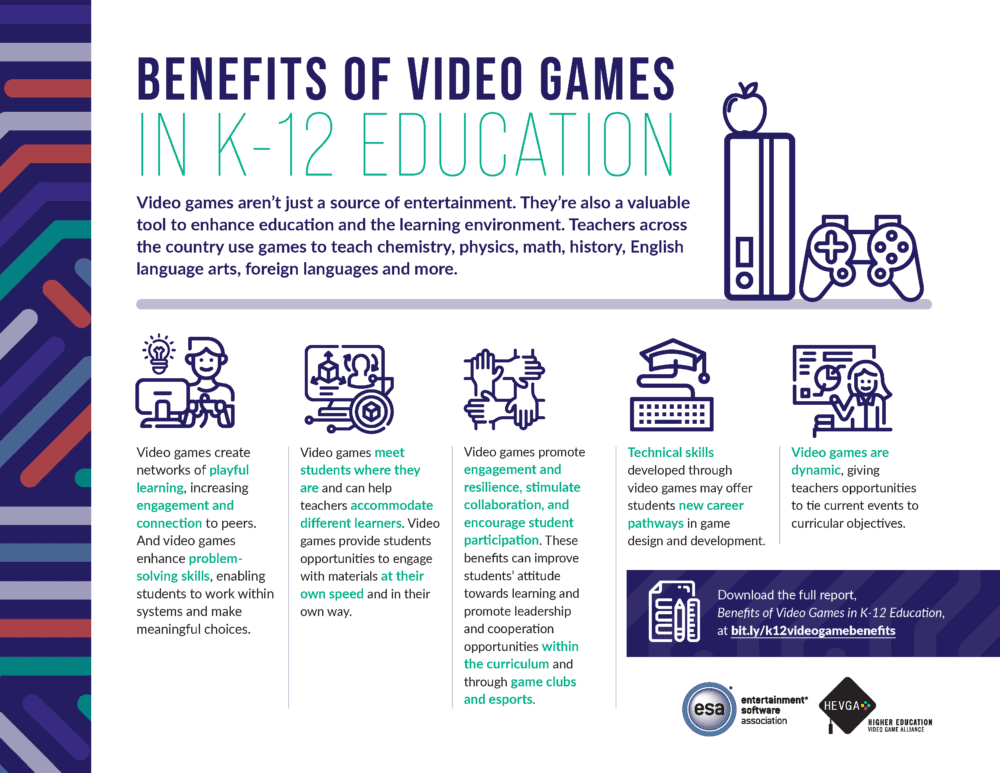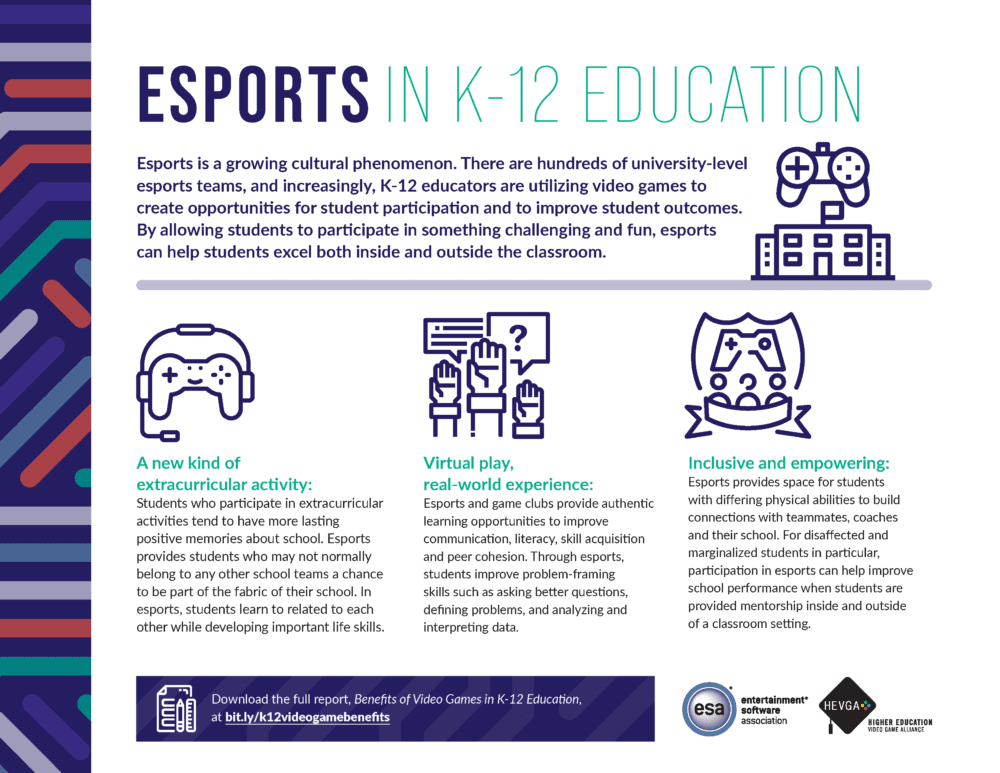Video Games and Education
 Benefits of Video Games in K-12 Education is a 2021 report produced by the Entertainment Software Association and the Higher Education Video Game Alliance that details how K-12 educators are using video games in classrooms across the U.S. to modernize learning opportunities and help students develop essential 21st century success skills. The report finds that video games promote engagement and resilience, stimulate collaboration and encourage student participation, which can improve student attitudes toward learning and promote leadership and cooperation opportunities within the curriculum and through game clubs and esports.
Benefits of Video Games in K-12 Education is a 2021 report produced by the Entertainment Software Association and the Higher Education Video Game Alliance that details how K-12 educators are using video games in classrooms across the U.S. to modernize learning opportunities and help students develop essential 21st century success skills. The report finds that video games promote engagement and resilience, stimulate collaboration and encourage student participation, which can improve student attitudes toward learning and promote leadership and cooperation opportunities within the curriculum and through game clubs and esports.
Learning Through Play
We learn through play. Whether it’s chess, playing with dolls, or a digital game of solitaire, play inspires critical thinking, creativity and connection. For children, play shapes and improves their social and psychological development. It’s an important and necessary way for them to experiment with the world. The games we play on computers, consoles and phones are simply the newest iteration of how we have used games to teach and learn for thousands of years.
Engaging Learners
Video games are ubiquitous. In the United States alone, nearly 227 million people play video games every week, and the majority of Americans believe that video games can be educational and can improve both cognitive and creative skills. Teachers agree: across the country, teachers are using games to teach chemistry, physics, math, history, English language arts, foreign languages and more. Educators know that video games can help students develop problem-solving skills, promote critical thinking and create meaningful connections to their peers.
Video Games in the Classroom
This report outlines how today’s teachers are using video games in schools from kindergarten to 12th grade. It is based on an extensive review of academic literature and draws on in-depth interviews with experienced teachers on their use of video games to enhance student learning. Video games promote engagement and resilience, stimulate collaboration and encourage student participation. These benefits can improve students’ attitudes towards learning and promote leadership and cooperation opportunities within the curriculum and through game clubs and esports.
To learn more about the benefits of video games and education and why many teachers today use video games to augment learning, check out the full report.
Education Games and Resources from ESA Members and Partners
ESRB is the non-profit, self-regulatory body for the video game industry that provides information about the age appropriateness, content and other features of a game or app so parents and consumers can make informed choices about which games are right for their family.
- Discovery Tour by Assassin’s Creed – Ancient Egypt (ESRB: TEEN) (Ubisoft)
- Discovery Tour by Assassin’s Creed – Ancient Greece (ESRB: EVERYONE 10+) (Ubisoft)
- Discovery Tour by Assassin’s Creed – Viking Age (ESRB: EVERYONE) (Ubisoft)
- Fortnite (ESRB: TEEN): Teaching with Fortnite Creative and Lesson Plans in Fortnite Creative (grades 8-12) (Epic Games) *
- Game Builder Garage (ESRB: EVERYONE) (Nintendo)
- Kerbal Space Program (ESRB: EVERYONE) (Take-Two Interactive)
- Legends of Learning E-Learning Platform (Legends of Learning)
- Minecraft: Education Edition (ESRB: EVERYONE 10+) (Microsoft)
- Rabbids Coding (Ubisoft)
- Rocksmith (ESRB: TEEN) (Ubisoft)
- Sid Meier’s Civilization VI (ESRB: EVERYONE 10+) (Take-Two Interactive)
- The American Democracy Game (NCSL Foundation)
- Valiant Hearts: The Great War (ESRB: TEEN) (Ubisoft)
* Grade suggestions provided by publisher





